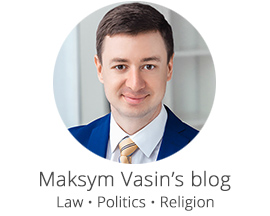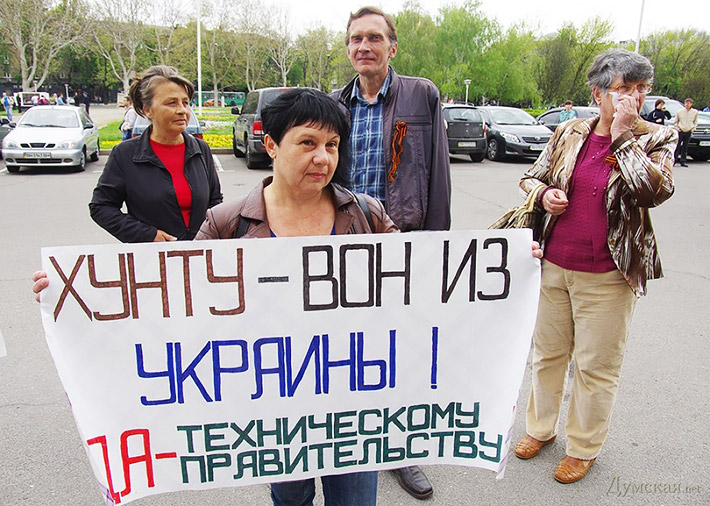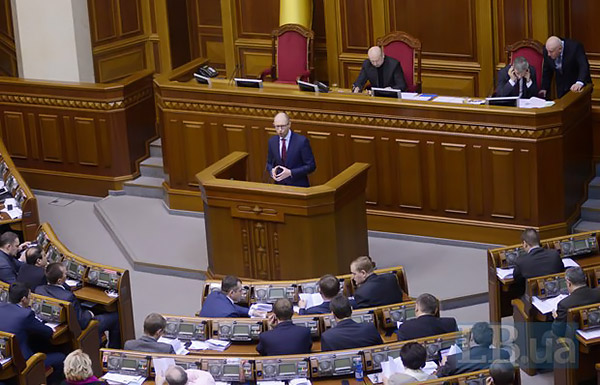In eastern Ukraine there are as many rumors circulating about the ‘Junta’ in Kyiv as about ‘elusive’ Ukrainian nationalists and the ‘all powerful’ Right sector movement.
But for the sake of peace the inhabitants of Donbas region should really reflect on what the term ‘Junta’ means and what (if any) relation a ‘Junta’ has to the new Kyiv government.
The dictionary definition is the following:
Junta – a military reactionary terrorist group in Spain and the countries of Latin America.
In modern usage the term ‘Junta’ is often used to refer to the dictatorship of a group of military leaders who came to power as a consequence of military state revolution.
Many illusionists would envy the skills of Russian propaganda which has managed to associate this term with the new government in Kyiv. After all the actual shift in power in Ukraine occurred as a result of the following chronology of events.
1. Former Ukrainian President Viktor Yanukovych tried unsuccessfully fro three months from November 30, 2013 to disperse several thousand peaceful protest on the Independence Square in Kyiv and in the other regions of the country.
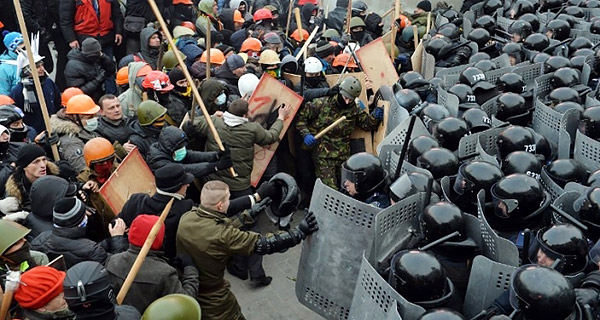
2. Almost all force subdivisions of Ukraine were brought to Kyiv for this purpose: police, security service and interior Ministry troops, including the: “Berkut”, “Tiger”, “Jaguar”, “Falcon”, subdivision “A” etc.
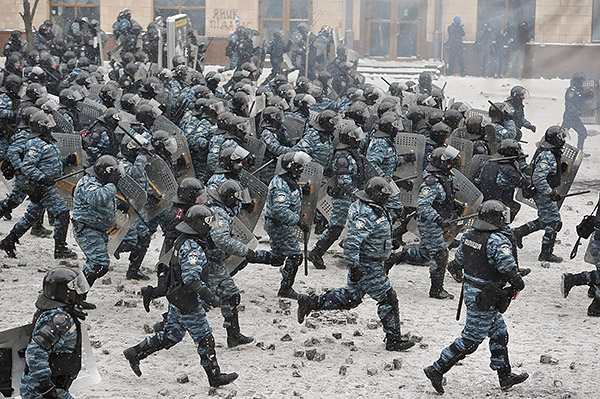
3. Starting from January 19, 2014 police started using stun and gas grenades and pump-action shotguns with a rubber and live ammunition against protesters. As a result the first protestors Serhiy Nigoyan and Michael Zhyznevskyj were killed on the 22 January and in the wood near Kyiv the activist Yuriy Verbitskiy was found dead with a signs of torture.
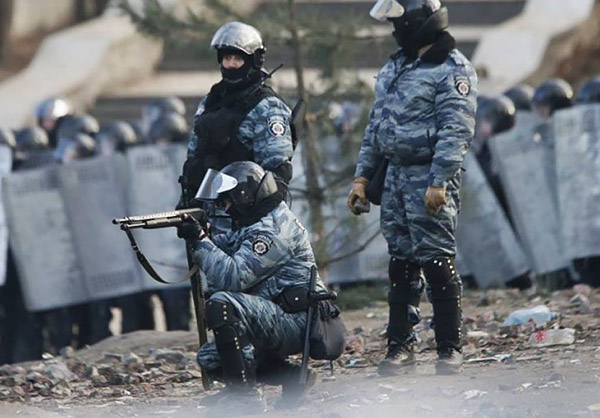
4. Such actions of the previous government led to the escalation of violence and to the transition of the protest to the phase of power resistance using Molotov cocktails and paving stones against armed warriors of the special subdivisions of riot police and the Security Service of Ukraine.
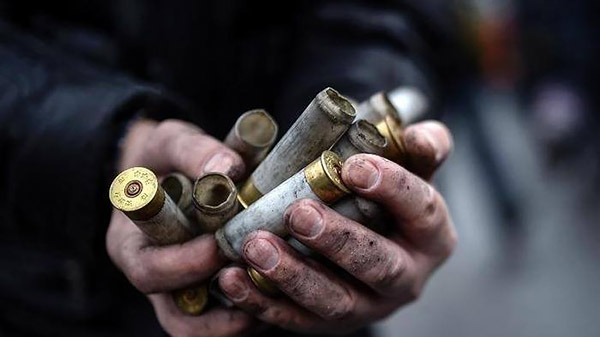
5. The first hundred deaths on the side of protesters, shot at from sniper rifles and machine guns, occurred in the period from 18th to 20th of February. But these attacks did not enable the authorities to clear Maidan protest by force.
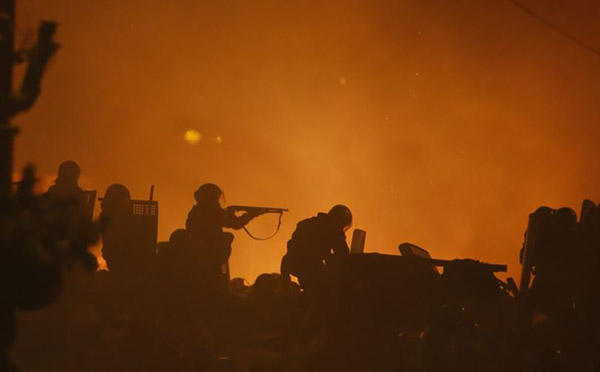
6. On the morning of February 21st in the presence of representatives of the President of Russia and the countries of EU, Yanukovych signed an agreement with opposition leaders – Yatsenyuk, Klitschko, and Tyagnibok about the holding of early presidential elections in December 2014. The terms of the agreement included to adopt and to sign within 48 hours, a law establishing the return of the Constitution of Ukraine to the 2004 framework, which limits the powers of the President in favour of the Parliament.
7. On the same day in the Parliament of Ukraine 386 deputies (above the quorum of 300) voted to adopted the law returning the Constitution to the 2004 framework. That night Viktor Yanukovych suddenly fled from Kyiv without fulfilling his side of the agreement.
8. On the morning of February 22nd Yanukovych recorded a video message in Kharkov that he was leaving Ukraine (with his property). Only on February 27 he appeared in Russia.
9. Due to the escape of Yanukovych during the night of February 22 the parliament of Ukraine adopted a resolution #4193 “On self-elimination of Ukrainian president from the fulfilling of the constitutional powers.” The document called for the holding of presidential elections on May 25, 2014. There were 328 Ukrainian deputies who voted for this decision.
10. Thereafter, on February 22, Oleksandr Turchynov was appointed as the new Speaker of Parliament, and as an Acting President of Ukraine, 285 out of 339 of the deputies present voted for this motion. And on February 27 the Parliament of Ukraine appointed Arseniy Yatsenyuk as Prime Minister of Ukraine. 371 deputies voted for that, representing 82% from the total formulation of the Parliament.
And now let’s see who exactly brought the new head of the Ukrainian government to power.
According to the results of voting, the most votes for the new Prime Minister came from the faction of the “Party of the Regions”, whose honorary President at that time was ex-President Yanukovych.
94 deputies voted “for” and 31 more votes in support of the new head of Ukrainian government gave the group called “Economic development”, which was created by the people from the “Party of Regions”.
The faction “Batkivshchyna” gave 85 votes, individual deputies – 51, 40 – from Klitschko’s party “UDAR”, 36 – from the faction “Svoboda”, 34 – from the newly formed group “Sovereign European Ukraine.”
As a result, from all the all parliamentarians who expressed support for the new Head of the Cabinet of Ministers of Ukraine, one third are elected dwellers of Donbas and southern regions of Ukraine.
It is obvious that the Parliament of Ukraine, composed of 450 deputies, best represents the interests of citizens with different political preferences and residence. And this legally elected Parliament, on the grounds of Constitution, adopted a decision by an absolute majority about the change of power in Ukraine.
So all these rumors about the Kyiv ‘Junta’ are nothing more than just another huge distortion by the Russian authorities and propagandist media controlled by them. They are the only media in the world who call the decisions of the Ukrainian Parliament an uprising and terrorists armed with machine guns and mortars in Donbas peaceful protestors.
The principle of “divide and rule” has been adopted by the separatists who are not interested in a united and prosperous Ukraine, including the prosperity of its eastern regions.
Author: Maksym Vasin, lawyer (Kyiv – Donetsk)
Translated by Victor Vityuk, edited by James Mackintosh
